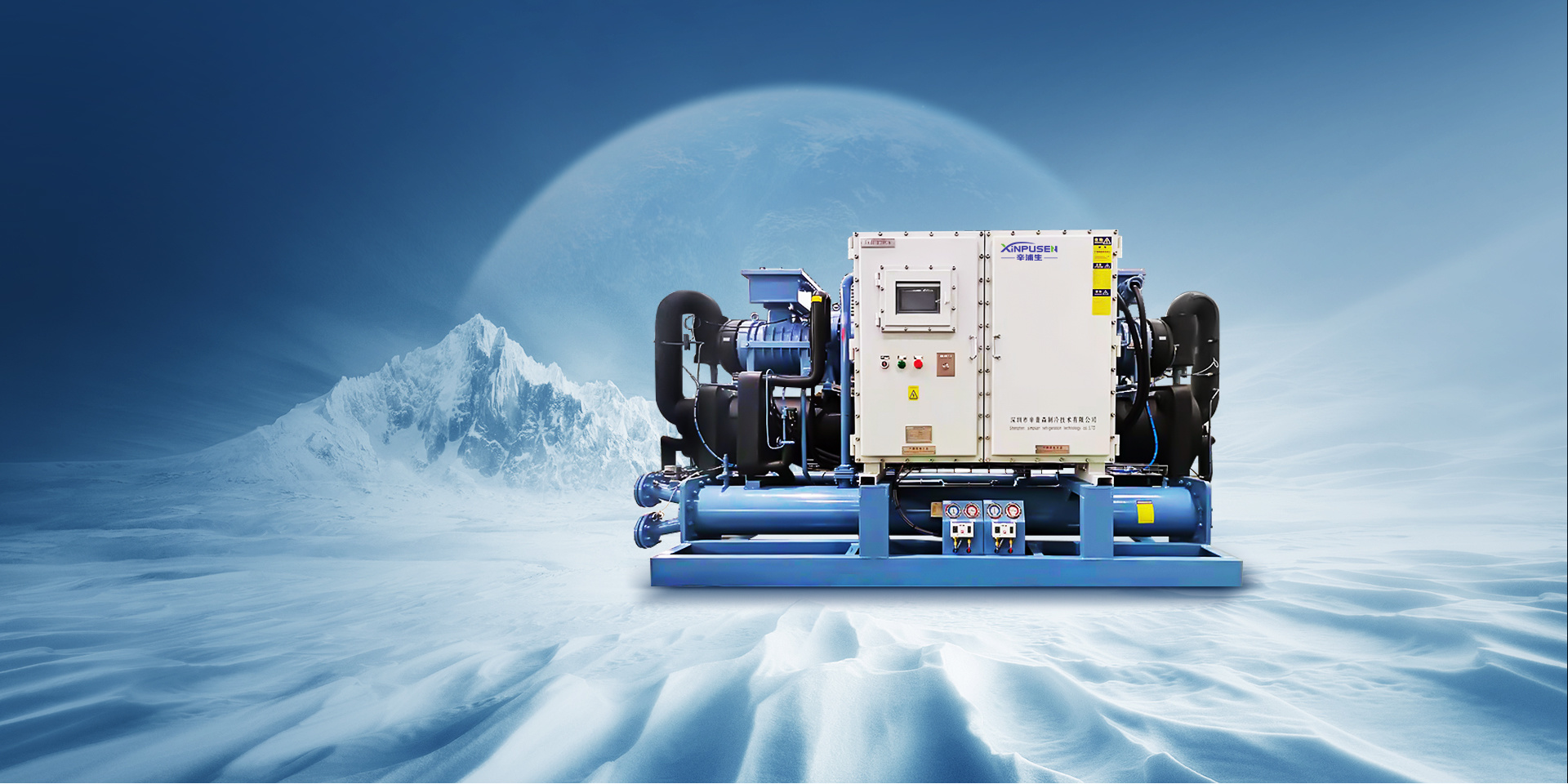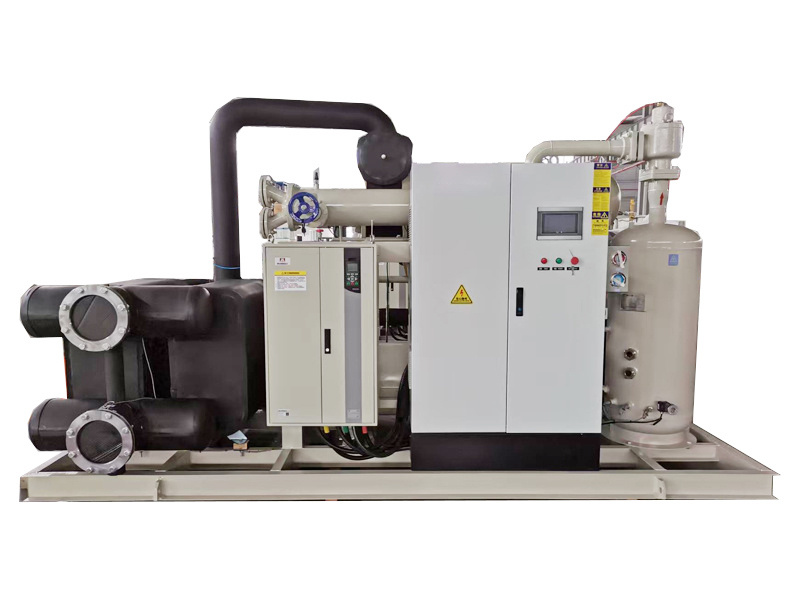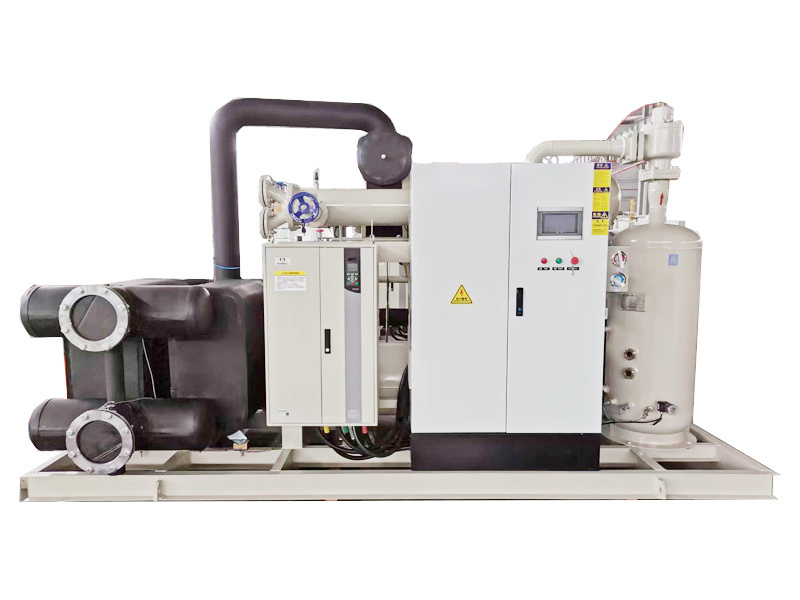Understanding Ultra-Low Temperature Cascade Chillers: A Comprehensive Guide
2025-11-03 11:20
Ultra-low temperature cascade chillers are specialized cooling systems designed to achieve and maintain extremely low temperatures, often well below the freezing point of water. These systems are critical in various industrial applications, including scientific research, pharmaceuticals, and certain manufacturing processes. Understanding how these chillers work and their benefits can help industries optimize their cooling solutions.
At their core, ultra-low temperature cascade chillers operate on the principle of using two or more refrigerant circuits, each designed to operate at different temperature ranges. The first stage of cooling brings the temperature down to a moderate level, while the second stage further reduces the temperature to ultra-low levels. This cascading effect allows for greater efficiency and more effective temperature control compared to traditional cooling methods.
One of the primary applications of ultra-low temperature cascade chillers is in laboratories and medical facilities that require precise temperature regulation for sensitive experiments or storage. Biological samples, pharmaceuticals, and certain chemicals require consistent low temperatures to maintain their stability and efficacy. In these settings, any fluctuations in temperature can lead to significant errors or product degradation, underscoring the importance of reliable cooling systems.
Another significant benefit of ultra-low temperature cascade chillers is their energy efficiency. While they are designed for demanding cooling requirements, advancements in technology have led to more energy-efficient models that reduce operational costs. Moreover, many modern chillers incorporate features like variable speed compressors and advanced controls, allowing for better energy management and reduced environmental impact.
In addition to their applications in laboratories and pharmaceuticals, ultra-low temperature cascade chillers are also utilized in industries such as electronics manufacturing and food processing. In electronics, specific components may require ultra-low temperatures to ensure optimal performance and longevity. In food processing, these chillers can help in freezing and preserving perishable items without compromising quality.
Maintenance and proper operation of ultra-low temperature cascade chillers are critical to their performance. Regular servicing, including checking refrigerant levels, cleaning filters, and monitoring system pressures, can prevent breakdowns and extend the lifespan of the equipment. Furthermore, keeping the system well-maintained ensures that it operates at peak efficiency, thus preserving energy and reducing costs.
In conclusion, ultra-low temperature cascade chillers represent a vital component in modern industrial applications. Their ability to maintain extremely low temperatures, coupled with energy efficiency and reliability, makes them indispensable for sectors that depend on precise cooling solutions. By understanding their functionality and applications, industries can make informed decisions when it comes to cooling technologies, ensuring they choose the right systems to meet their specific needs.
At their core, ultra-low temperature cascade chillers operate on the principle of using two or more refrigerant circuits, each designed to operate at different temperature ranges. The first stage of cooling brings the temperature down to a moderate level, while the second stage further reduces the temperature to ultra-low levels. This cascading effect allows for greater efficiency and more effective temperature control compared to traditional cooling methods.
One of the primary applications of ultra-low temperature cascade chillers is in laboratories and medical facilities that require precise temperature regulation for sensitive experiments or storage. Biological samples, pharmaceuticals, and certain chemicals require consistent low temperatures to maintain their stability and efficacy. In these settings, any fluctuations in temperature can lead to significant errors or product degradation, underscoring the importance of reliable cooling systems.
Another significant benefit of ultra-low temperature cascade chillers is their energy efficiency. While they are designed for demanding cooling requirements, advancements in technology have led to more energy-efficient models that reduce operational costs. Moreover, many modern chillers incorporate features like variable speed compressors and advanced controls, allowing for better energy management and reduced environmental impact.
In addition to their applications in laboratories and pharmaceuticals, ultra-low temperature cascade chillers are also utilized in industries such as electronics manufacturing and food processing. In electronics, specific components may require ultra-low temperatures to ensure optimal performance and longevity. In food processing, these chillers can help in freezing and preserving perishable items without compromising quality.
Maintenance and proper operation of ultra-low temperature cascade chillers are critical to their performance. Regular servicing, including checking refrigerant levels, cleaning filters, and monitoring system pressures, can prevent breakdowns and extend the lifespan of the equipment. Furthermore, keeping the system well-maintained ensures that it operates at peak efficiency, thus preserving energy and reducing costs.
In conclusion, ultra-low temperature cascade chillers represent a vital component in modern industrial applications. Their ability to maintain extremely low temperatures, coupled with energy efficiency and reliability, makes them indispensable for sectors that depend on precise cooling solutions. By understanding their functionality and applications, industries can make informed decisions when it comes to cooling technologies, ensuring they choose the right systems to meet their specific needs.
More Information
2025-11-03
Understanding Ultra-Low Temperature Cascade Chillers: A Comprehensive Guide
Ultra-low temperature cascade chillers are specialized cooling systems designed to achieve and maintain extremely low temperatures, often well below the freezing point of water. These systems are critical in various industrial applications, including scientific research, pharmaceuticals, and certain manufacturing processes. Understanding how these chillers work and their benefits can help industri
2025-10-27
Unlocking the Benefits of Ultra-Low Temperature Cascade Chillers in Industry
Unlocking the Benefits of Ultra-Low Temperature Cascade Chillers in Industry
Introduction to Ultra-Low Temperature Cascade Chillers
In the realm of industrial refrigeration, **ultra-low temperature cascade chillers** are transforming how businesses manage temperature-sensitive processes. These advanced cooling systems are not merely a trend; they represent a significant shift in how industries t
2025-10-20
china double-stage low temperature chiller
Discover the ultimate cooling solution with our advanced Double-Stage Low Temperature Chiller, designed for applications requiring extreme precision and power. This specialized equipment utilizes a sophisticated two-stage refrigeration cycle to deliver outstanding performance where it matters most
2025-10-20
Understanding Double-Stage Low Temperature Chillers: Efficiency and Applications
Double-stage low temperature chillers represent a vital component in the realm of industrial refrigeration, particularly for applications requiring precise cooling at lower temperatures. These chillers are designed to operate effectively in environments where standard cooling systems may falter, providing a reliable solution for industries such as pharmaceuticals, food processing, and chemical man
2025-11-03
Understanding Ultra-Low Temperature Cascade Chillers: A Comprehensive Guide
Ultra-low temperature cascade chillers are specialized cooling systems designed to achieve and maintain extremely low temperatures, often well below the freezing point of water. These systems are critical in various industrial applications, including scientific research, pharmaceuticals, and certain manufacturing processes. Understanding how these chillers work and their benefits can help industri









 CN
CN EN
EN




